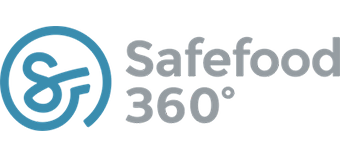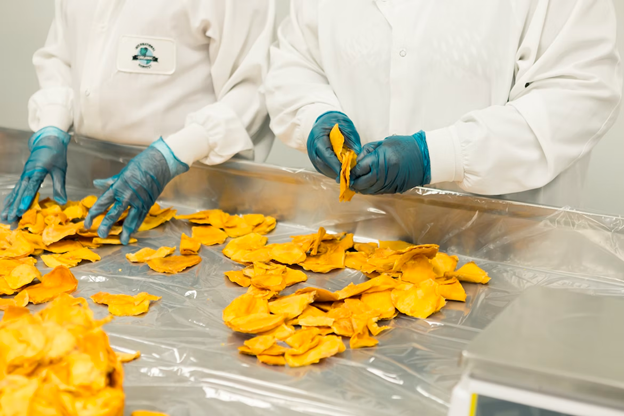Seven Ways Compliance Management Platforms Improve Operational Efficiency of Food Manufacturers
Food is life, and food manufacturers are the ones that provide people with these life-nourishing substances to support life. However, food manufacturers have many challenges to contend with. From meeting consumer expectations for food safety, traceability, and quality control, food companies have their hands full while ensuring people have sufficient food delivered to their dining tables.
While there are many solutions to help solve these challenges, the most effective solutions come from implementing a compliance management system. Compliance management is about keeping track of a company’s legal, regulatory, and quality requirements. However, despite these tools, many food companies still need help with compliance management.
If you want to get ahead of the food manufacturing compliance management game, you’ve come to the right place. We’ve identified seven ways food manufacturers can improve operational efficiency by implementing compliance management platforms.
Promote global standards
In today’s food manufacturing world, promoting global standards is more important than ever. After all, the industry is constantly evolving in response to new regulations and market demands. For example, there are now stricter guidelines for food safety quality management systems.
In addition, many countries have started implementing their unique regulations regarding labelling ingredients sourced from genetically modified crops. Compliance management platforms are designed to help companies manage their compliance information.
Managing compliance can be challenging when you’re a global company with operations in multiple locations. You must ensure that your procedures and standards are consistent across all locations. This is where a food safety management system can come in handy. One of the best ways for food manufacturers to promote global standards is by implementing a compliance management system that isle from anywhere at any time.
Improve traceability
Food manufacturers are under increasing pressure to prove their products are safe and high-quality. This means they need to be able to trace the ingredients and components of their products back to the source—the ability to track products from their source, although the supply chain, is essential for food manufacturers.
With a compliance management tool in place, companies can be sure that every step of production is documented and accounted for. An efficient food safety document management system allows them to maintain high-quality control standards and food safety at every production level.
Food manufacturers must also ensure that if there is a problem with the quality or safety of their products, they can trace those issues anywhere in the production cycle. By using a system for food traceability, companies can record where ingredients come from and how they were manufactured. With these tools, companies can easily verify the origin of ingredients, track what happened during processing, and keep track of product specifications over time.
Ensure regulatory compliance
Food safety and quality regulations are complex and constantly changing. In some cases, the rules are established at the state or federal level; in others, they may be enacted by local governments or industry trade groups. Food manufacturers must stay on top of these regulations to ensure compliance and avoid costly fines or penalties.
With the help of a quality management system, manufacturers can ensure that they meet all relevant standards and comply with government regulations. A compliance management platform also helps companies maintain complete records of their processes so they can demonstrate compliance if an inspection takes place—which can help avoid costly fines or penalties.
A traceability system can help companies meet regulatory requirements by tracking ingredients from source through processing and distribution until they reach their destination. A traceability system is important for assisting food companies in ensuring regulatory compliance.
Streamline food safety audits
Every year, companies spend millions of dollars on food safety audits. A compliance management platform allows companies to streamline food safety audits to save costs. This can help companies reduce the time spent on audits and ensure that products are safe to eat. These technology tools can automatically generate information on how products were processed and where they came from.
For instance, a food manufacturer discovers it uses ingredients from a supplier that is not following proper procedures in their production facility. It was through a safety audit that the company found this out and acted before any products were shipped out.
Integrating traceability systems with enterprise technology like an ERP platform is an excellent practice to streamline food safety audits better. Because companies must comply with government regulations, an ERP tool provides vital traceability data for managing food safety and quality control and safety. However, there are a lot of different systems with different workflows in Safety audits. To understand the best practice of your food safety plan, you’ll need to consult with our technical experts to enhance your current system. You can also check out the list of the best ERP platforms on the market today to help you leverage this technology.
Bring the supply chain closer to home and consumer
The food supply chain is becoming increasingly globalised as companies increase their presence in foreign markets. One of the reasons for this trend is that consumers expect products to be available at any time, which means that there are more opportunities for contamination.
Traceability can also help companies bring the supply chain closer to consumers. This is important for companies who want transparency about where their products come from. Companies can also benefit from a closer relationship with their suppliers. By directly interacting with the supplier, companies will be able to understand their processes better and ensure they are in line with the company’s standards.
Due to food wastage, more than 800 million people live in hunger and are undernourished worldwide. An integrated compliance and supply chain management system can help companies bring their supply chains closer to home. Aside from minimising food wastage, this approach allows them to reduce costs and the amount of time it takes for products to reach their destination.
Reduce food waste and recall risk
One of the biggest challenges the food industry faces is addressing food safety hazards to reduce food waste. As a result of the global food system, there is often more food than people want to buy.
Year after year, the world wastes a third of all food produced, amounting to around $940 billion annually in global food wastage. Likewise, the worldwide food supply chain is characterised by complexity and uncertainty, often with many intermediaries between the supplier and retailer. This makes it difficult to trace a product back to its source if there are problems or recalls.
One way to reduce food waste is through better forecasting and ordering so that companies don’t end up with too many products. This is why companies use technology like CRM tools to help zero in on their pipelines and prevent the over-allocation of food products. If you are still using paper-based system to manage your food safety plan and suppliers, you can use our ROI tool to evaluate the return of your business if adopted Safefood 360°.
CRM also helps achieve quality client communication to ensure correct orders are delivered promptly. This means that companies won’t be forced to throw away products that have gone unsold or expired. You can search reputable online software marketplaces to find the right CRM tool. But be sure to read expert, unbiased software product analyses such as Capterra, HubSpot, or Begin.
Enhancing productivity and profitability
Productivity measures how much value a company generates per unit of input. This can include labour, capital, land, and other information. Food companies need to be highly productive to make money.
However, this doesn’t mean that food manufacturers should be more profitable by cutting back on employees or reducing wages for those employed at the firm. Instead, productivity increases can come from providing better tools and equipment for workers. This way, they can perform their jobs more efficiently without sacrificing output quality.
By reducing food waste, companies can save money and reduce the amount of land used for agriculture. This helps them enhance productivity and profitability.
Remain compliant with compliance management tools
We’ve presented how compliance management platforms for food manufacturers can help improve their operational efficiency. These software systems can manage all the processes of a food manufacturing business and help individuals work together by connecting them electronically.
Compliance management platforms improve operational efficiency in food manufacturing by combining their core functionality with additional tools to help you manage food safety, maintain traceability, improve quality and compliance, and automate specific processes.
Evidence suggests these robust tools have helped food manufacturers become more efficient and improve their quality control systems. So, it’s high time these reliable technology tools help elevate your food business to another level of compliance, food safety, and sustainable profitability.
Safefood 360° is an innovative software designed by food experts, and it is dedicated to food manufacturers to work for a safer world. Subscribe to our newsletter for the latest food safety news. If you would like to have more details about how to ensure the food safety of your company, submit a demo request here.






Leave a Reply
Want to join the discussion?Feel free to contribute!